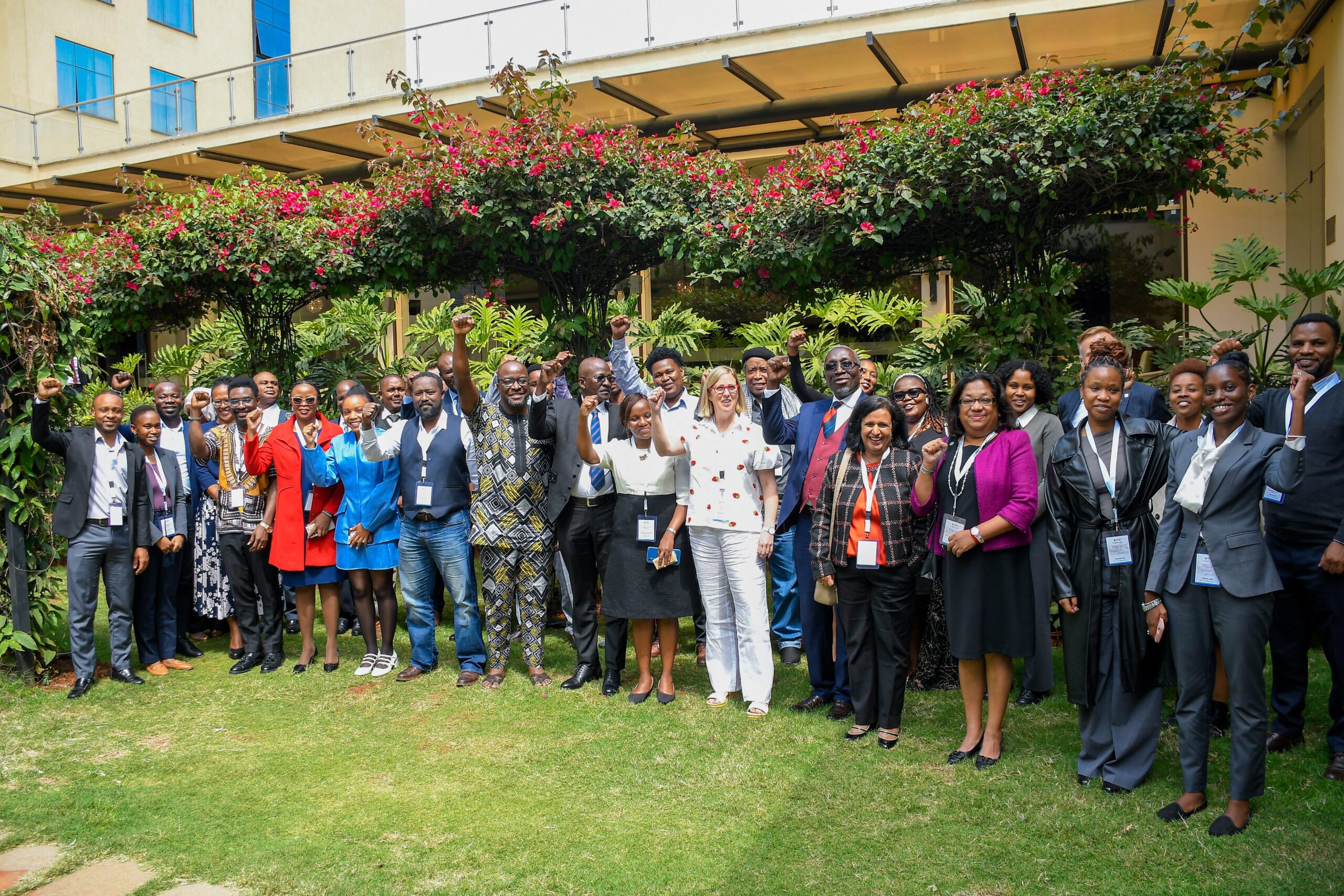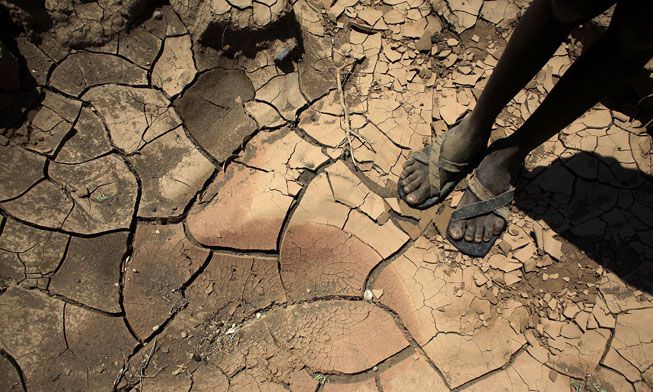Zimbabwe President greets a Judge of the Court Justice Hon Justice Tujilane Rose Chizumila after receiving a plaque from the Court’s President Hon Justice Sylvain Oré
By Sarah Nyakio
The President of the Republic of Zimbabwe, H.E Emmerson Mnangagwa, has given assurance that Harare will ratify the Protocol establishing the African Court on Human and Peoples’ Rights.
He gave the assurance when receiving a delegation of the African Court led by its President, Hon Justice Sylvain Oré, and which included Judge Hon Justice Tujilane Rose Chizumila and senior Registry officials, at State House in Harare.
‘’We will act…we do not want to be left behind,’’ he stated, adding that Zimbabwe strongly cherishes and values Pan Africanism and the organs that exemplify this idea.
‘’We will ratify the protocol,’’ he stressed. Zimbabwe signed the Protocol in 1998 but is yet to ratify it and make the Declaration under Article 34(6) to allow its citizens to access the Court directly.
The African Court delegation was in Zimbabwe on the 14th -15th August 2019 on a sensitisation visit at the invitation of the government.
The delegation met key stakeholders, including the Acting Minister of Foreign Affairs, the Speaker, the Chief Justice, and the Acting Chairperson of the Zimbabwe Human Rights Commission and the Bar Association, among others.
‘’We have just set up a human rights commission and we want to ensure that all internal mechanisms are in place on exhaustion of local remedies,’’ Mnangagwa said.
‘‘’These visits have helped to raise awareness of the Court’s existence,’’ said Justice Oré.
For the Court to discharge its mandate effectively and further strengthen the African continent’s human rights system, Justice Oré said, a greater number of countries must ratify the Protocol.
BACKGROUND
Since the adoption of the Protocol in June 1998, 30 out of 55 AU Member States have ratified it, but only nine State Parties to the Protocol have made the Declaration under Article 34(6) which enables non-governmental organizations’ (NGOs) and individuals to access the Court directly. These are Burkina Faso, Benin, Ghana, The Gambia, Cote d’Ivoire, Mali, Malawi, Tanzania, and Tunisia.
The 30 States which have ratified the Protocol are: Algeria, Benin, Burkina Faso, Burundi, Cameroon, Chad, Côte d’Ivoire, Comoros, Congo, Gabon, The Gambia, Ghana, Kenya, Libya, Lesotho, Mali, Malawi, Mozambique, Mauritania, Mauritius, Nigeria, Niger, Rwanda, Sahrawi Arab Democratic Republic, South Africa, Senegal, Tanzania, Togo, Tunisia and Uganda.
The African Court on Human and Peoples’ Rights was established by virtue of Article 1 of the Protocol to the African Charter on Human and Peoples’ Rights on the Establishment of an African Court on Human and Peoples’ Rights, to complement the protective mandate of the African Commission on Human and Peoples’ Rights, with a view to enhancing the protection of human rights on the continent.
The Court’s mandate has since been extended to try international crimes, such as genocide, crimes against humanity and war crimes.
As at July 2019, the Court received 220 applications of which 62 have been finalised. The Court is composed of 11 Judges, nationals of the Member States of the African Union elected in their individual capacity. The Court meets four times a year in Ordinary Sessions and may hold an Extra-Ordinary Sessions.
Photo credits; African Court Media











